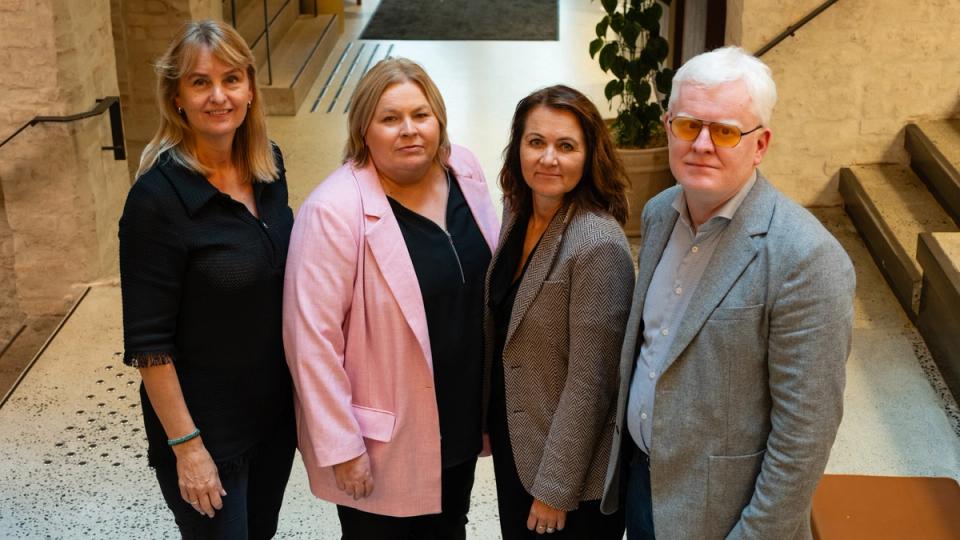27. mai 2015
Is technology rocking the boat or sinking the ship?

“Technology has rocked journalism to its foundations” Since the internet slashed the traditional news reader’s value to one fifteenth, publishers […]
“Technology has rocked journalism to its foundations”
Since the internet slashed the traditional news reader’s value to one fifteenth, publishers have been reeling – desperately searching for new ways to sell their content. Then followed the rise of mobile users. Now, the news industry has been hit full force by what one observer, Frederic Filloux, in this report refers to as a social tsunami – the rise of news consumption on social networks. Technology has rocked journalism to its foundations.
Meanwhile, young digital-first news outlets and publication platforms have mounted strong online challenges, redefining the way in which content reaches its audience. Today, third party publishing and programmatic advertising are challenging the very ways that journalism works. What are the consequences of this collision of technology and journalism?
Will these technological advances, as one contributor in this report suggests, merely be golden handcuffs for publishers, threatening to tongue-tie quality journalism? Or could solving the technology versus content riddle lead to a new golden era for journalism, enhanced by digital storytelling techniques and powerful distribution tools?
In the , we have asked some of the world´s cleverest media leaders and brightest thinkers to share with us their thoughts.
2014 Tinius Trust Annual Report
Several of our contributors endeavour to show us how the publishing industry can embrace disruption in order to survive, and even thrive. Tanya Cordrey, Chief Digital Officer at Guardian News & Media and member of the Schibsted board, shares how The Guardian went from being the ninth largest newspaper in Britain, to becoming the second largest English quality news site in the world.
Media companies must understand how new technology changes the behaviour of news consumers, and The Guardian has decided to pursue the reader wherever he or she is, even on other platforms than their own.
With examples from the mobile marketplaces, Pierre-Francois Marteau, VP of Schibsted Classifieds, demonstrates how technology can be translated into gains for companies that embrace the value of data.
Berlin-based tech think tank Third Wave further condenses these thoughts into a wonderfully simple analytical model, explaining how the wall between commercial and content departments must be torn down before a media company can be successful.
Jonathan Stray, fellow at Columbia University’s Tow Center, then takes a step back as he tries to imagine how a building full of writers and developers can enhance existing journalistic tools, and then tries to conceive the future for technology-driven journalism.
However, new publishing and revenue models are in many ways threatening the ideals of independent journalism.
Mathias Döpfner, CEO of Axel Springer, asks in his insightful contribution what will happen if publishers submit to the editorial whims of major internet companies like Facebook and Google.
These companies, Döpfner argues, are not only the new content distributors, but also control the process of sifting, weighting and evaluating events. Is it a good thing if editorial departments and distribution channels end up being controlled by a single entity?
Döpfner worries that journalism free of charge, only paid for through the submission of personal data, will loose its independence. Nevertheless, he remains hopeful that traditional publishing companies will manage to uphold their journalistic genetic code as a competitive advantage against tech and infrastructure companies in the digital economy.
Aidan White, Director of The Ethical Journalism Network, echoes these sentiments. White lays out how a seismic shift in the power relations between editorial and commercial departments has created intense pressures on independent journalism. He believes that the effects of internet behemoths´ piggybacking and republishing of other entities content, is threatening the ethical foundation of journalism and editorial independence. Why does ethics in journalism matter?
Because, as editors are increasingly outsourcing their editorial powers, this independence more than ever is what makes journalism important. A solid editorial ethic is precisely what sets journalism apart from other online expressions.
So what are media companies to do? For decades, Silicon Valley has not been keen on developing products, which incurred high labour costs. Where content was needed, it has been generated by users – or plainly stolen. Now, as several of our contributors agree, quality journalism is returning to the mix.
Quartz Founder and CEO Kevin Delaney, asks whether a new publisher can thrive not only without a web front page, but entirely without a web page at all. Delaney argues that, ironically, it is easier these days to create a new media brand when you forego some of the traditional tools of online brand building, such as an elegant and carefully tended homepage. What does matter is the clarity you have about the content itself, its voice and your investment in its quality. Still, there is the challenge of retaining your content brand when published with third parties, which may be important for many brands in order to boost their traffic.
We must seek to develop alternative financial models for this kind of publishing. Two Dutch start-ups are answering the call, and share with us their experiences with models that could change the way independent journalism is created and distributed. Alexander Klöpping is the founder of Blendle, a company that has unbundled media content from many sources and offers it to users through micropayments. They have attracted a national Dutch audience of 250,000 people – to a large degree young people who have never paid for journalism – until now.
De Correspondent is a start-up based purely on investments from crowdsourcing. Its founder Ernst-Jan Pfauth explains how subscribers pay one year in advance, and in return receives clutter free, advertising free journalism independent of commercial strategy and click-baiting.
The internet has given us amazing access to knowledge. More than ever, journalists, editors and developers are needed to clarify what is important, to ask the right questions, to put information in context, and to present the news.



